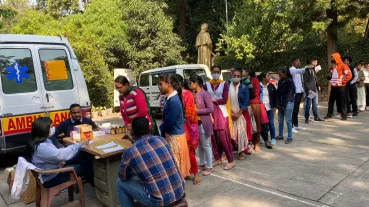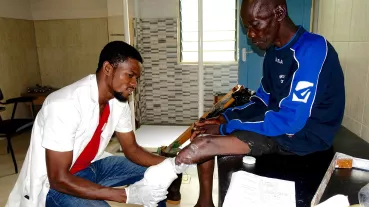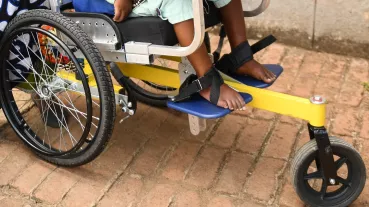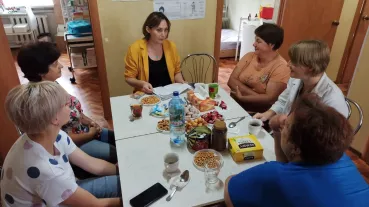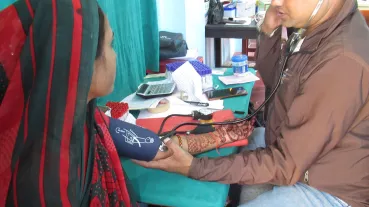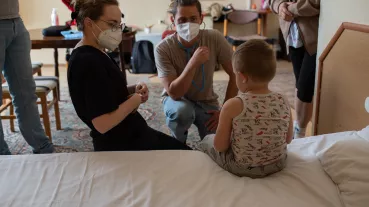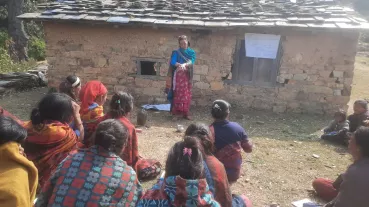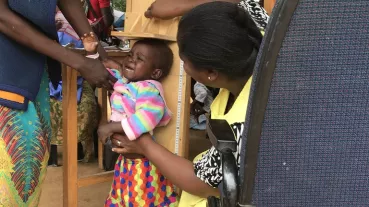Contribution to guarantee the right to health of the Putumayo communities in the Ecuadorian Amazon
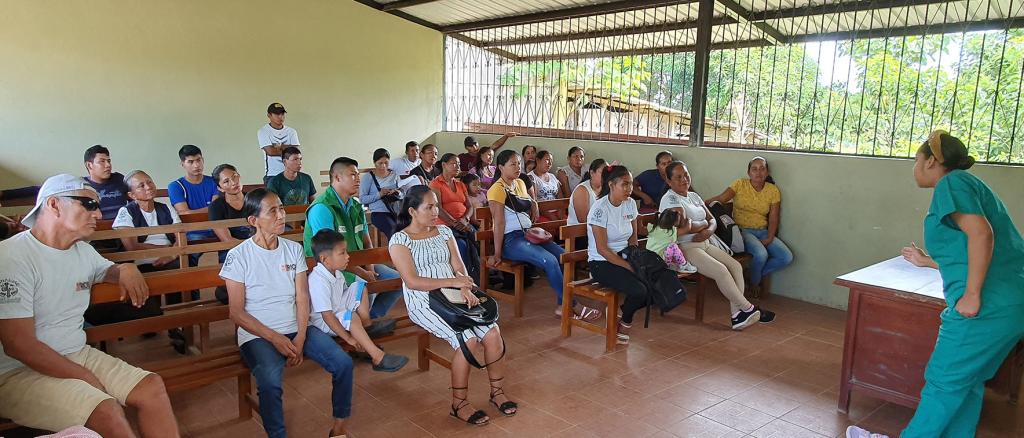
Situation:
78% of Putumayo's population is rural and ethnically diverse. 95.5% of homes have unsatisfied basic needs. Hypertension and diabetes are within the 10 leading causes of morbidity in 2021. 19% of minors suffer malnutrition. The incidence of chronic diseases is higher in rural areas, where access to health services is limited. This leads to a worsening of pathologies, increasing the risk of disability and morbidity.
Project Objective:
3000 vulnerable people in the Putumayo canton, with priority given to indigenous people, have access to health services with an intercultural and gender focus, as well as prevention, diagnosis and treatment of diabetes and hypertension, and the promotion of positive nutrition habits.
Subobjectives:
SO1: Health personnel and community health agents from 3 health centers have improved their capacity to provide health services for diabetes, hypertension and positive nutrition habits, with an intercultural and gender approach.
SO2: Health service and community health agents carrying out health care in health centers and in the community with an intercultural and gender approach.
SO3: The Putumayo Health Roundtable has been strengthened: it integrates interinstitutional and community participation, is effectively functioning and implementing a local health agenda.
IOV1: Out of the total of 3,000 people served through project activities, at least 40% are women who rate the services received as timely, optimal and tailored to their care needs.
IOV2: 80% of inter-institutional actors (members of grassroots organizations, Ministry of Health, local NGOs, municipality, etc.) participate regularly and contribute to the healthagendas of the Inter-Institutional Roundtable.
IOV3: 1 experience of intercultural and gender approach to the Kichwa Cosmo vision of
Output 1: Health personnel of 3 health centers and Health Agents (community promoters and midwifes) have improved their capacity to provide health care services for diabetes, hypertension and positive nutrition habits, with an intercultural and gender focus.
A.1.1 Train the health personnel in the clinical practice guidelines of the Ministry of Public Health (MPH), in the following topics: diabetes, hypertension and positive nutrition habits, governance, with integration of intercultural and gender approaches.
A.1.2. Train community health agents (promoters and midwives) in diabetes, hypertension and positive nutrition habits, governance, interculturality and gender.
A.1.3. Implement a knowledge management system with a focus on generational and intercultural change in the existing public 3 health centers.
Output 2: Health service and community agents carrying out health care in the health units and in the community with an intercultural approach.
A.2.1. Establish an epidemiological status of non-communicable diseases and nutrition habits in the Putumayo canton and its respective action plan for planning care in the communities.
A.2.2. Implement primary health care activities within the health centers and in the community (medical brigades,home visits, talks on promotion health, etc.).
Output 3: Health roundtable with inter-institutional and community participation, functioning and implementing a local health agenda. Social and community participation is a key factor in the project.
A.3.1. Strengthen the Putumayo Inter-institutional Health Roundtable. The table is established and led by the Ministry of Health and the Decentralised Autonomous Government at the Municipal level of Putumayo canton.
A.3.2. Develop and implement work plans for Local Health Committees within the 3 health care centres of the Putumayo Health District.
A.3.3. Accompany 70 community health agents (50 community promoters and 20 midwifes) so that they can become an important part of the health care system, legalize its structure and to formalize agreements and conventions in the fulfillment of their role through creating the “Putumayo Promoters Association”.
A.3.4. Implementation of massive health promotion campaigns in NCDs prevention and awareness.
The project has been designed within the national legal framework of Ecuador. The “Comprehensive Health Care Model – Family, Community and Intercultural” (MAIS-FCI, by initials in Spanish) encompasses the set of policies, strategies, guidelines and tools available in Ecuador to respond to the health needs of individuals, families and the community. The MAISFCI approaches and its relationship with the proposed project are shown below:
Renewed primary health care, which is reoriented to a health model that strengthens promotion and prevention with equitable and continuous access to comprehensive health services. It implies inter-institutional articulation and citizen participation in community health improvement processes. The project includes inter-institutional participation through the local Health Roundtable where community public articulation is exercised to achieve improvements in the health situation of the Putumayo canton.
Epidemiology-Community Surveillance is a methodological conception for the analysis of reality and its transformation. It gives great importance to the role of the community and its reflection for research and response to improve its health. The project will support this approach through Community Surveillance that will be implemented with the support of Community Health Agents (composed by community promoters and midwives) to address diabetes and hypertension, with the leadership and supervision of the health units. In addition to carrying out primary health interventions (screening, identification of critical cases and promotion and prevention activities) in the communities, as integral body of the public health system.
The “Comprehensive Health Care Model” (MAIS-FCI) of Ecuador has the challenge of consolidating the implementation of the model, working with families, developing new relational forms, placing the user at the centre of care, installing good practices, and developing interventions oriented towards social impact results. It is a very ambitious model that has so far presented many problems for its full implementation in the country.
We highlight two important processes that can be innovative for the implementation of the MAIS-FIC in Putumayo:
Social participation: Recognises the fundamental role of community participation in creating healthy conditions. The project involves the Association of Community Agents of Putumayo, empowering them to ensure the right to health and contribute to preventive measures through advocacy in the local Health Board.
Interculturality: The project recognises the historical and cultural context of health among different populations, especially indigenous groups such as the Kichwa. It engages gender and intercultural experts to integrate indigenous knowledge in the treatment of chronic diseases and nutrition, promoting healthier behaviours and documenting valuable information for future use.
